With far more concrete than green space, Taipei isn’t feted for its lush parks and luxurious gardens. But surprisingly, picnics have become all the rage in the capital.
In June, some 8,000 urbanites turned up to a large picnic held at one of the city’s riverside parks. White Picnic Day (白色野餐日) took place in April and will return next month. And last Saturday, television network TLC held its second Picnic Day, after the first one proved fabulously popular last year.
With New Lawn as its theme, the Taipei Picnic Club (台北野餐俱樂部) will host a picnic event tomorrow on the Huashan Grassland (華山大草原).
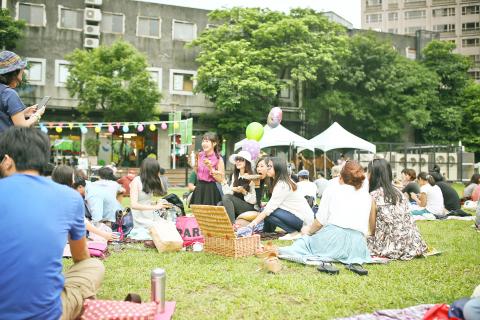
Photo Courtesy of Taipei Picnic Club
“Most people associate parks with old people doing exercises ... Through the activity, we hope people can become more imaginative when shaping and utilizing public spaces,” says Charlie Huang (黃靖雯), co-founder of the club.
Walk in the park
Set up earlier this year by five friends who who met when they were studying in London, the Taipei Picnic Club launched its first event in May at the Chung Shan Creative Hub (中山創意基地). It attracted close to 2,000 picnickers.
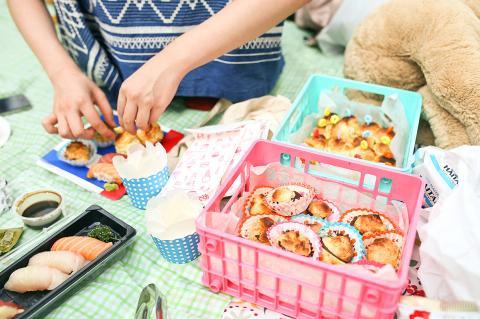
Photo Courtesy of Taipei Picnic Club
Dave Chen (陳昱興), the club’s co-founder, held an earlier event in 2009, which was inspired by the Tokyo Picnic Club.
“My friends and I like picnicking, often in Da-an Forest Park. Older people, though, looked at us in an unfriendly way, as if we were weirdos,” Chen says.
Five years later, the club continues to challenge stereotypical assumptions about the use of parks by bringing different elements to the event — live music, for example. DJ Yen, math rock band Elephant Gym (大象體操) and indie rock veterans Freckles (雀斑) will perform.
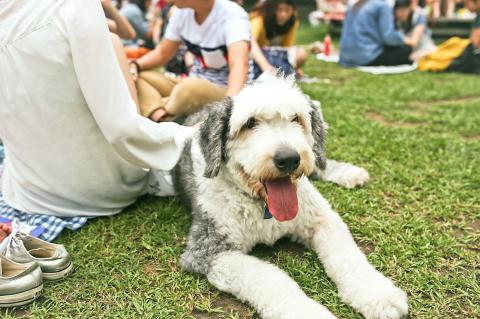
Photo Courtesy of Taipei Picnic Club
Environmental issues will also be under the spotlight. Chan Hui-chen (詹慧珍) general secretary of Fairtrade Taiwan (台灣公平貿易協會), has been invited to talk about sustainable food, while Lee Jo–ning (李若寧) from Taiwan Youth Climate Coalition (台灣青年氣候聯盟) will share what she learned while exploring sustainable city projects in Brazil.
For families with children, the organizers have arranged an art workshop. Bookworms will want to check out the event’s mobile library.
When night falls, part of the meadow will be turned into an outdoor cinema where Pina, a documentary about late dancer Pina Bausch by German film maestro Wim Wenders, will be screened.
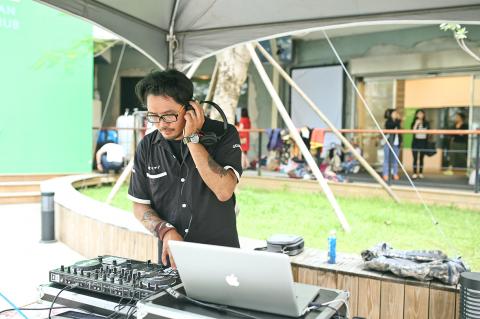
Photo Courtesy of Taipei Picnic Club
But the event doesn’t end on the grass. On Sunday, Ota Hiroshi, co-founder of the Tokyo Picnic Club, will attend a forum to share his experience. Another participating speaker is Choi Chi-hau (蔡志厚) from Hong Kong, who set up Lawnmap (草原地圖) in 2011 to encourage residents in Hong Kong to reclaim public green space. The forum starts at 3:30pm at the Chung Shan Creative Hub, 21, Minsheng E Rd Sec 1, Taipei City (台北市民生東路一段21號), free admission.
What to bring
While the mainstream media often focuses on the commercial side of picnicking by reporting on related products such as picnic baskets and blankets, coolers and outdoor outfits, Chen and Huang find it difficult to answer questions like what to bring to a picnic.
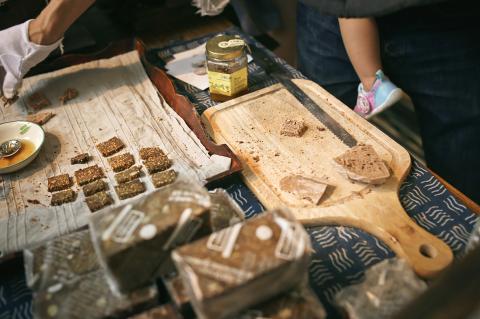
Photo Courtesy of Taipei Picnic Club
“A picnic is one of those simple things in life that can make people happy. It doesn’t have to be pretty or decorative. You just invite some friends, find a spot in a park and enjoy yourselves,” Chen says.
independent and free
Huang agrees, adding that there should be no requirement for having a picnic and that is why they want to keep the event free and independent.
“When you want to have a picnic, you can just go and do it. And that feels great,” she says.
The Taipei Picnic Club funds itself through FlyingV, a crowd-funding platform based in Taiwan.
Huashan Grassland is located at the intersection of Linsen North Road and Beiping East Road. The nearest MRT station is Shandao Temple MRT Station (善導寺捷運站) exit No. 1. For more information, go to the club’s Facebook page at www.facebook.com/taipeipicnicclub.

In recent weeks the Trump Administration has been demanding that Taiwan transfer half of its chip manufacturing to the US. In an interview with NewsNation, US Secretary of Commerce Howard Lutnick said that the US would need 50 percent of domestic chip production to protect Taiwan. He stated, discussing Taiwan’s chip production: “My argument to them was, well, if you have 95 percent, how am I gonna get it to protect you? You’re going to put it on a plane? You’re going to put it on a boat?” The stench of the Trump Administration’s mafia-style notions of “protection” was strong
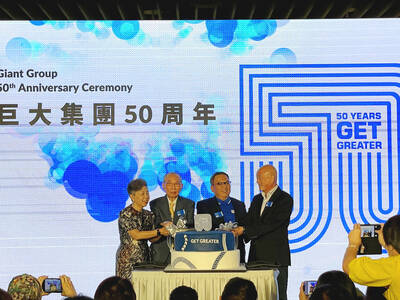
Late last month US authorities used allegations of forced labor at bicycle manufacturer Giant Group (巨大集團) to block imports from the firm. CNN reported: “Giant, the world’s largest bike manufacturer, on Thursday warned of delays to shipments to the United States after American customs officials announced a surprise ban on imports over unspecified forced labor accusations.” The order to stop shipments, from the US Customs and Border Protection (CBP), came as a surprise to Giant, company officials said. Giant spokesman Ken Li (李書耕) said that the CPB never visited the company’s factories to conduct on-site investigations, nor to interview or

Every now and then, it’s nice to just point somewhere on a map and head out with no plan. In Taiwan, where convenience reigns, food options are plentiful and people are generally friendly and helpful, this type of trip is that much easier to pull off. One day last November, a spur-of-the-moment day hike in the hills of Chiayi County turned into a surprisingly memorable experience that impressed on me once again how fortunate we all are to call this island home. The scenery I walked through that day — a mix of forest and farms reaching up into the clouds
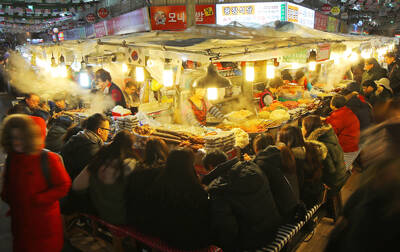
“Eighteen years ago, people didn’t even know the name of this ingredient,” says 58-year-old Gil Sa-hyeon, holding up a cluster of dried brownish stems. “Now it’s everywhere.” His shop, Joseon Yakcho, sits in the heart of Seoul’s Yangnyeongsi Market, South Korea’s largest traditional medicinal herb market, its streets lined with shops displaying buckets of herbs such as licorice root and cinnamon bark that spill on to the pavements, filling the air with their distinct, earthy aroma. The ingredient Gil is referring to is hovenia dulcis, known in Korean as heotgae — the oriental raisin tree that’s become the cornerstone of South Korea’s